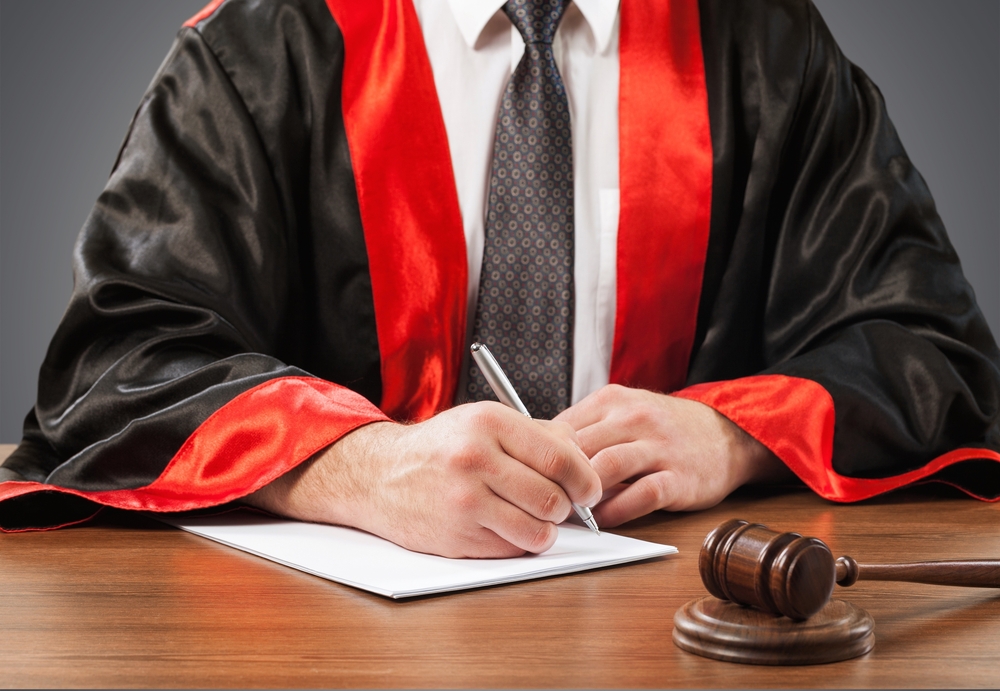What to Expect at a Workers’ Compensation Hearing

Most disputed workers’ compensation claims in the U.S. involve hearings with incredibly high stakes. You face the haunting process, especially if you’re already grappling with the physical and emotional toll of a workplace injury.
At the heart of this process is a judge who will weigh the evidence, assess the credibility of witnesses, and decide whether you receive desperately needed benefits.
In this guide, we’ll walk you through what to expect when you walk into that hearing room—from the preparation steps to the potential outcomes—so you’re not navigating this critical stage of your claim alone.
And remember, having a workers compensation attorney by your side throughout this stressful time can make all the difference. Contact Klezmer Maudlin, PC, at (317) 569-9644 to ensure you’re fully prepared and represented during your workers’ compensation hearing.
Schedule a Free Initial Consultation Today!
The Purpose of a Workers’ Compensation Hearing
The primary goal of the hearing is to resolve disputes between you, the injured worker, and your employer’s insurance company regarding the benefits you are entitled to under Indiana’s workers’ compensation laws.
In Indiana, an administrative law judge (ALJ) oversees these meetings. They act as a neutral party tasked with determining the facts of the case based on evidence presented by both sides. According to Indiana Code § 22-3-3-1, this process is less formal than a traditional court trial, but it’s no less stressful. Whether the issue is the extent of your injury, the benefits you should receive, or whether your injury is work-related, the hearing serves as the battleground where parties can settle their disputes.
Preparing for the Hearing

Before the hearing date, you and your attorney must prepare for the hearing. Here’s what that process may look like:
Gathering and Organizing Evidence
Under Indiana’s workers’ compensation laws (Indiana Code § 22-3-3-6), the burden of proof lies with you, the injured worker, to establish that your injury is work-related and warrants compensation.
This includes collecting:
- Medical Records: Comprehensive records from your treating physicians that detail your injuries, treatments, and any limitations on your ability to work.
- Accident Reports: Documentation of the incident, including when and how the injury occurred.
- Witness Statements: Testimonies from coworkers, supervisors, or anyone else who witnessed the accident.
- Wage Documentation: Proof of your earnings before and after the injury to help calculate lost wages.
Consulting with Your Attorney
Reviewing your case with your attorney usually involves:
- Case Review: A thorough examination of your injuries, the circumstances under which they occurred, and any medical treatments you have received.
- Preparation for Testimony: Your attorney will help you prepare to answer questions that may arise during the hearing, ensuring that your responses are clear and consistent.
Pre-Hearing Conferences and Settlement Negotiations
In some cases, your preparation may also include attending a pre-hearing conference or settlement negotiation.
The ALJ often facilitates these meetings, which aim to:
- Clarify Issues: Help both parties understand the key points of contention and narrow down the issues they will address at the hearing.
- Explore Settlement Options: Potentially resolve the dispute without proceeding to a full hearing, saving time and resources.
Lining Up Witnesses
If your case involves disputed facts, you need credible witnesses who can testify about the specifics of the incident, your condition, or the impact of your injury. You need people who can provide consistent and reliable testimony, as any discrepancies can weaken your case.
Preparing Medical Evidence
Medical evidence forms the cornerstone of any workers’ compensation claim.
This includes:
- Treating Physician’s Opinion: The insights and recommendations of your primary doctor.
- Independent Medical Examinations (IMEs): Evaluations that the workers’ compensation board may order to provide an impartial second-opinion assessment of your condition.
You need complete, accurate, and up-to-date medical documentation, as it will play a significant role in the judge’s decision.
The Hearing Process

In Indiana, the ALJ typically conducts the hearing in a conference room rather than a courtroom. This setting can intimidate anyone, and the same rules of evidence and procedure apply.
Stages of the Hearing
- Opening Statements: Both sides—the injured worker and the employer’s insurance company—will have the opportunity to make opening statements. These are brief presentations in which each side outlines its main arguments and the evidence it will present.
- Presentation of Evidence: This is the core of the hearing. Your attorney will present your case, introducing evidence such as medical records, witness testimonies, and any other relevant documents that support your claim. The insurance company’s attorney will also present evidence, often aimed at minimizing the extent of your injury or disputing its connection to your employment.
- Witness Testimony: Either side may call witnesses to testify about the incident, your medical condition, or your ability to work. The judge will closely evaluate the credibility of each witness. The opposing side may also call you to testify, so ensure your statements align with the evidence presented.
- Cross-Examination: After each witness testifies, the opposing side can cross-examine them. This is where they may expose any inconsistencies or weaknesses in the testimony. Your attorney will prepare you and your witnesses for this phase, ensuring that everyone remains calm and provides consistent, truthful answers.
- Closing Arguments: Once each side has presented all the evidence, both sides will make closing arguments. This is the final opportunity to persuade the judge by summarizing the evidence and reinforcing the key points of your case.
Role of Medical Evidence
In workers’ compensation hearings, medical evidence often plays a decisive role. The judge will review medical records, reports from independent medical examinations (IMEs), and expert opinions to determine the extent of your injury and how it impacts your ability to work.
The judge’s assessment of this evidence directly influences the type and amount of benefits you may receive. The judge will weigh the credibility of each source before making a decision.
Duration and Potential Delays
The length of the hearing can vary depending on the case’s complexity. While the hearing may take one day, the process may extend over several months, especially if the judge extends the hearing or requires additional evidence.
After the hearing, the judge will typically review all the evidence before issuing a written decision, which may take 30 to 90 days.
Potential Outcomes of the Hearing

Once the ALJ has thoroughly reviewed the case, they will issue a decision.
Possible Decisions
- Claim Approval: The best-case scenario is a full approval of your claim. This means the judge has determined that your injury is work-related, and you are entitled to the benefits you requested. These benefits could include medical expenses, temporary total disability (TTD) payments, or permanent partial disability (PPD) payments, depending on the nature of your injury.
- Partial Approval: In some cases, the judge may issue a partial approval. This means that while some aspects of your claim are accepted, others are denied. For instance, you might receive approval for medical treatment but not for wage replacement, or the judge may agree that your injury is compensable but disagree on the severity or the extent of the disability.
- Claim Denial: Unfortunately, not all claims are successful. If the judge finds that the evidence does not support your claim—for example, if your injury is not deemed work-related or if there’s insufficient medical evidence to prove your case—they will deny your claim. A denial means you will not receive any workers’ compensation benefits from your employer’s insurance.
- Request for Additional Evidence: Occasionally, the judge might determine that more information is needed before deciding. This could involve obtaining further medical evidence, witness testimony, or other documentation clarifying disputed issues.
- Settlement Recommendation: In some instances, the judge might recommend that both parties reach a settlement agreement. This recommendation could come during the hearing or to avoid a prolonged dispute. A settlement can provide a quicker resolution and sometimes results in a lump sum payment.
Timeline for the Decision
After the hearing, the judge will consider all the evidence and arguments before issuing a written decision. This typically takes between 30 to 90 days, depending on the complexity of the case and the judge’s schedule. During this time, remain patient and communicate with your attorney, who can keep you informed about any updates.
Options if the Decision Is Unfavorable
You can challenge the outcome if the judge does not decide in your favor—whether through partial approval, denial, or otherwise. Under Indiana workers’ compensation law, you can file a Request for Review with the full Workers’ Compensation Board of Indiana within 30 days of receiving the decision. This review allows a panel of judges to re-examine the decision, which could lead to a different outcome.
Should the full Board uphold the original decision, you may then appeal to the Indiana Court of Appeals, but this step involves a more complex legal process and requires careful consideration and consultation with your attorney.
Tips for Success at Your Workers’ Compensation Hearing

- Be Honest and Consistent: The ALJ will closely scrutinize the consistency of your testimony with the evidence presented. Any discrepancies between your statements and the documented evidence can harm your credibility and weaken your case.
- Stay Calm and Composed: Stress and anxiety can lead to mistakes or inconsistencies in your testimony. Take deep breaths, listen carefully to each question, and take your time before responding. If you don’t understand a question, don’t hesitate to ask for clarification.
- Answer Questions Clearly and Directly: Avoid giving overly detailed or off-topic answers, as this can confuse the judge or open up new areas for cross-examination by the opposing side. Stick to the facts and avoid embellishing your responses. If you don’t know the answer to a question, it’s okay to say so.
- Stick to the Facts: While your injury and its impact on your life may be deeply personal, the hearing is a legal proceeding where decisions are based on evidence and facts. Emotional appeals are unlikely to sway the judge.
- Be Respectful: This includes being respectful to the judge, the opposing party, their representatives, and anyone else involved in the process. Disrespectful behavior or language can reflect poorly on you and influence the judge’s perception of your case. Treat everyone involved with courtesy, even if you feel frustrated or wronged.
- Prepare for Cross-Examination: Work with your attorney to prepare for this phase by reviewing potential questions and practicing your responses. Staying calm and sticking to the facts will help you navigate cross-examination effectively.
- Bring a Support Person: If allowed, consider bringing a friend or family member to the hearing for moral support. While they may not be able to speak on your behalf, their presence can provide comfort and help you stay focused.
Issues with Your Workers’ Comp? We Can Help
If you’ve made it this far, hopefully you feel better equipped to handle the pressures of a workers’ compensation hearing and present your case effectively. The stakes are high, but with thorough preparation and a clear, composed approach, you can increase your chances of securing the benefits you deserve.
If you need help navigating your hearing or want to ensure you’re fully prepared, reach out to Klezmer Maudlin, PC at (317) 569-9644. Our team is here to support you every step of the way.

